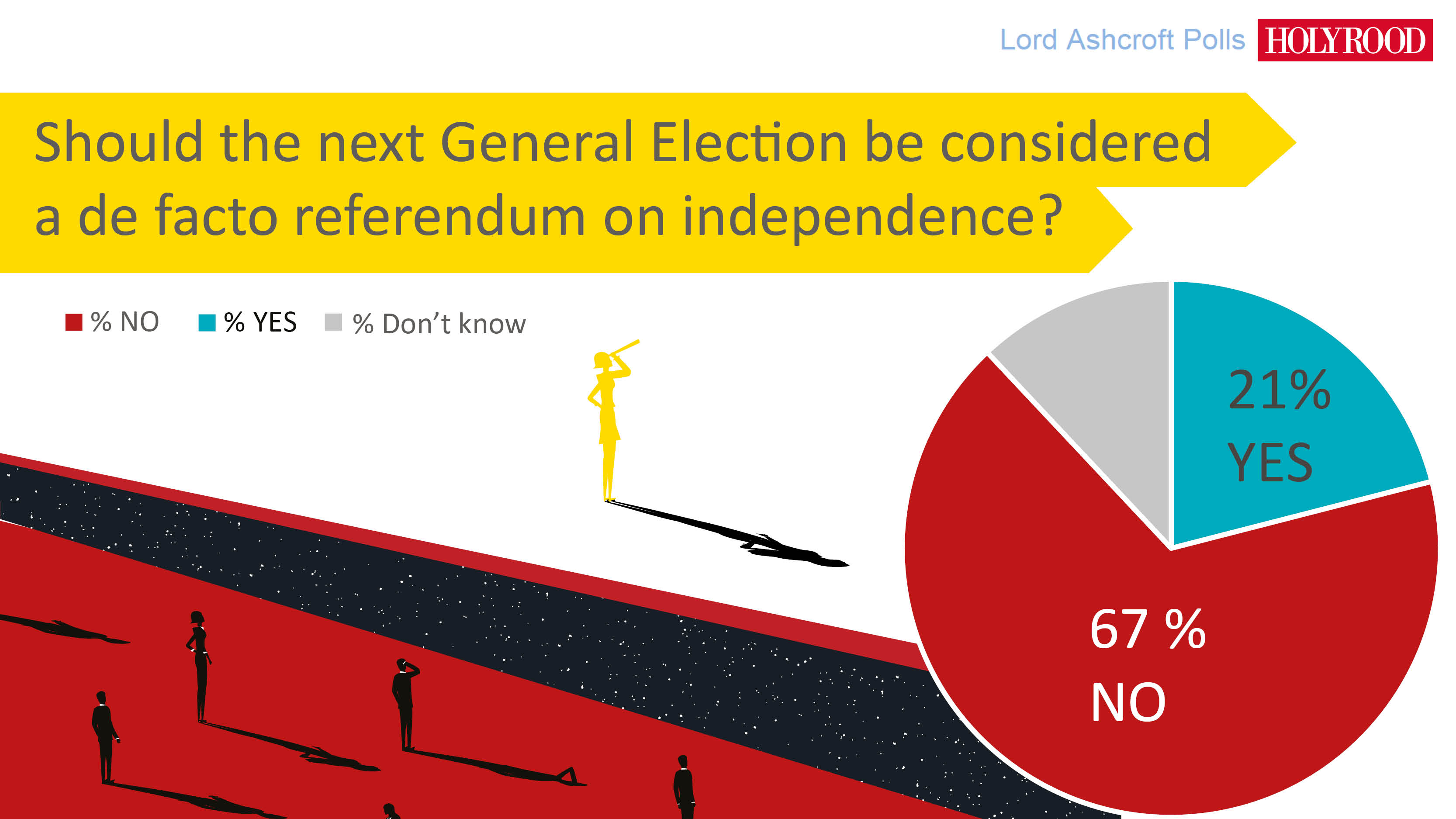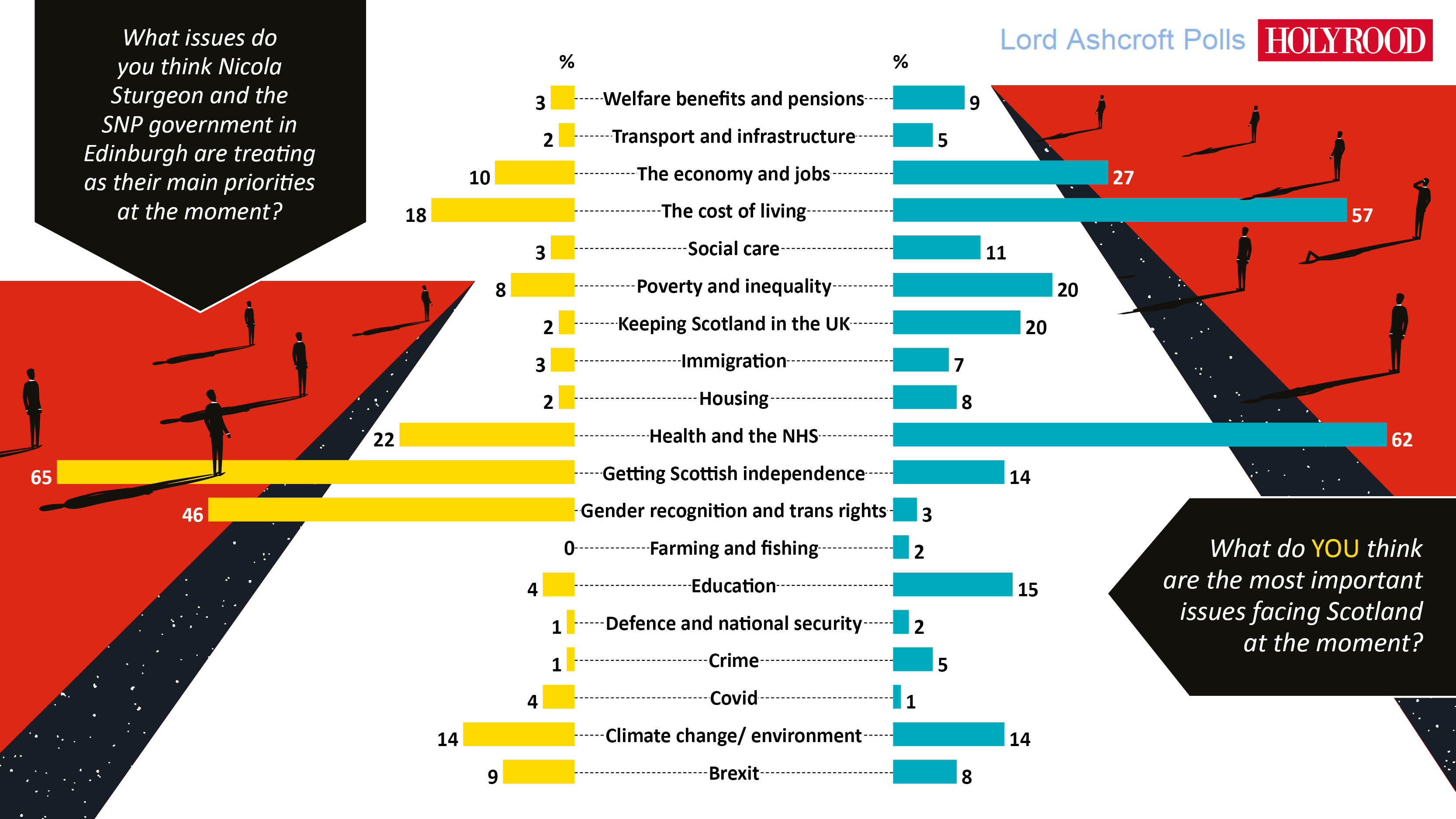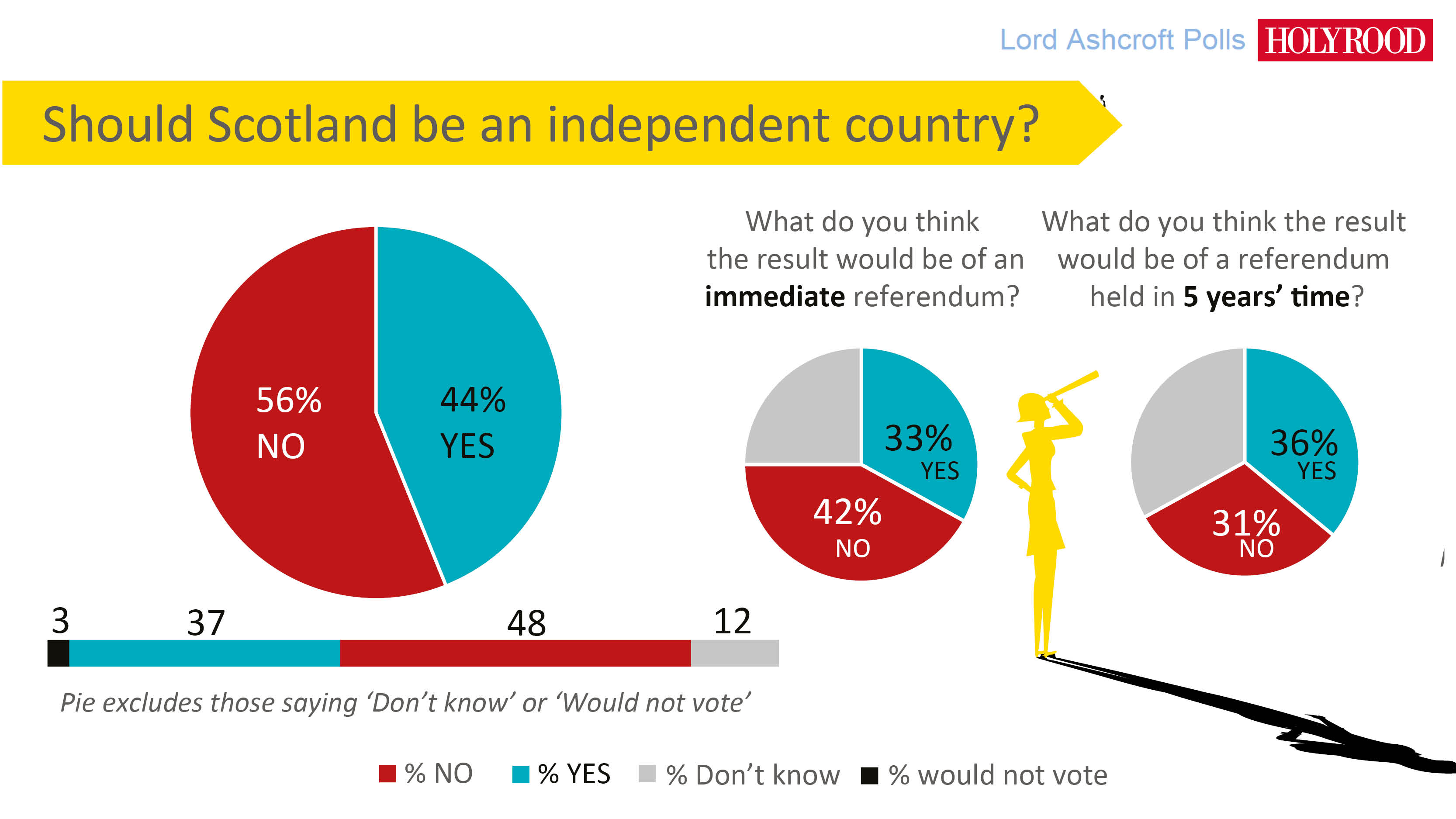Lord Ashcroft poll reveals gulf between Scottish Government and voters on independence and gender reforms
They are the defining political issues of the moment – Scottish independence and gender recognition reform – and the SNP champions radical change on both counts.
But new polling released exclusively to Holyrood shows that Scotland’s biggest party is currently out of step with the public on these and other key matters in a big way.
After 15 years of political dominance – and ahead of a special conference focused on its independence strategy – the poll is the latest and largest in a series which provide troubling reading for the SNP leadership.
The results raise questions about the direction being taken by Nicola Sturgeon’s SNP-Green government as it considers a legal challenge to the UK Government’s Gender Recognition Reform (GRR) Bill veto, and attempts to chart a course to constitutional change.
And after Sturgeon announced the SNP would fight the next general election as a “de facto” referendum on independence, the polling of more than 2,100 people by Lord Ashcroft has found a large majority – including many sceptical SNP supporters – are not behind that move.
In a representative sample of Scots aged 16 and over, only one in five (21 per cent) agreed that “the next general election should be taken as a de facto independence referendum”, with every vote cast for a pro-independence party taken as one for ending the Union. In contrast, two in three (67 per cent) agreed that “people vote at elections for lots of different reasons – we cannot assume that every vote for the SNP or the Greens is a vote for Scottish independence”.
Only 44 per cent of those who voted SNP in the 2019 general election were in favour of using the next one as a de facto indyref, compared to 48 per cent who were sceptical.
And while the public as a whole see these two issues as being at the top of the Scottish Government’s agenda, voters do not consider them as their own greatest priorities.

When asked which three issues they thought Sturgeon and her administration treat as their main concerns, Scottish independence came top (65 per cent), followed by gender recognition and trans rights (46 per cent) and health and the NHS (22 per cent).
In contrast, respondents named their own key priorities as health and the NHS (62 per cent), the cost of living (57 per cent) and the economy and jobs (27 per cent). Gender recognition and trans rights was scored at three per cent, while independence came out at 14 per cent – lower than the figure for “keeping Scotland in the UK” (16 per cent).
If a referendum was to be held tomorrow, the Yes side would lose, the poll suggests, with 44 per cent saying they would vote for independence and 56 per cent set to vote against it, excluding those who don’t know or would not vote.
That’s despite six consecutive polls in November and December which put Yes in front after the Supreme Court ruled the Scottish Parliament could not legislate for the advisory referendum Sturgeon hoped to hold later this year.
Lord Ashcroft’s poll shows only 33 per cent believe Yes would win an immediate referendum, with 25 per cent unsure, and just 36 per cent predict a Yes victory in such a ballot held within five years.
Meanwhile, half of those asked said the UK Government was right, or within its rights, to block the Scottish Government’s Gender Recognition Reform (GRR) Bill – despite angry responses to that move from MSPs.
“To the four prime ministers who have quit Downing Street since Nicola Sturgeon took up residence at Bute House, the first minister must have seemed enviably immune to the laws of political gravity,” Ashcroft comments. “If those laws now seem to be reasserting themselves, my latest poll of over 2,000 Scots helps explain.”
“Could it be,” he goes on, “that a party claiming to be uniquely in tune with Scottish people is losing touch?”

The Ashcroft poll echoes recent research by Ipsos which showed that 50 per cent of voters agreed with the Westminster intervention, highlighting what the firm’s Emily Gray called “the choppy waters that Nicola Sturgeon and the SNP find themselves in”.
Further polling work by YouGov found backing for a referendum this year amongst people who voted Yes in 2014 has dropped by 13 points since December to 52 per cent. Yet more polling by JL Partners put support for a referendum in the next year at 26 per cent.
The Ashcroft polling is published after the SNP’s Stewart McDonald MP and ex-cabinet secretary Alex Neil issued calls to abandon the de facto referendum strategy – calls that met with opposition from figures including Pete Wishart MP, as former First Minister Alex Salmond accused the SNP of having squandered political capital and failing to advance the independence cause.
The research was carried out between 26 January and 3 February, in the days after transgender rapist Isla Bryson was convicted for attacks on two women at the High Court in Glasgow, and after Scottish Secretary Alister Jack used Section 35 of the Scotland Act to stop the GRR bill passing into law.
The Bryson case, and the resulting discussion around whether or not the offender would join the female prison population, has become a watershed in the debate around self-identification measures in the GRR bill. And while Sturgeon says the Scottish Government remains intent on challenging the veto in court, the polling suggests that public support for this is weaker than the first minister would hope.
Fewer than three in ten (29 per cent) respondents said they supported the bill, but more than half (54 per cent) said they opposed it. And while 33 per cent said the UK Government was “wrong” to have blocked the bill, 50 per cent said it was “right” or “within its rights” to do so.
At 64 per cent, those respondents most likely to lean towards voting Green at the next election were also most likely to say that they support the GRR bill and that the UK Government’s veto was wrong. Only 44 per cent of those most likely to back the SNP said the same. For Labour and the Lib Dems – parties which also supported the legislation and oppose Westminster’s intervention – the figures are 13 per cent and 14 per cent respectively.

The block was described by Sturgeon as a “full-frontal attack” on Scottish democracy, with MSPs from the Greens, Labour and the Lib Dems also decrying the move. However, Scots as a whole said they would rather have a law made in London that they agreed with (50 per cent) than legislation set in Scotland that they disagreed with (28 per cent). That preference was reversed for those who intend to vote Yes at another referendum (20 per cent to 60 per cent, respectively), and is strongly linked to party preference; only one per cent of those most likely to vote Conservative said they’d prefer a Scottish law that they didn’t agree with, compared with 62 per cent of those most likely to vote SNP.
“Much of Sturgeon’s success lies in her skillful positioning as a powerful voice for Scotland against an indifferent or hostile Tory Westminster,” Ashcroft comments. “In the row over the GRR bill, that strategy has backfired.”
Sturgeon has previously spoken of using a ‘show, not tell’ approach to leadership, using the Scottish Government’s performance as a recruiting tool for the Yes movement. However, 42 per cent of respondents said the Scottish Government’s record on public services and the economy made them less confident in backing constitutional change, while 28 per cent said it made them more confident.
And after constitution secretary Angus Robertson said a Yes victory would also be a mandate to take Scotland back into the EU, the poll found only 36 per cent of Scots think an independent Scotland should re-enter that union without a further vote on the matter. A total of 32 per cent said a separate vote should be held and 16 per cent said Scotland should not join the EU.
Commenting on the results, political scientist Professor John Curtice said the SNP is “divided” on the GRR issue and on independence strategy. However, he urged caution about the long-term impact of the GRR debate on Scotland’s politics. “It already seemed that support for independence was weakening before the GRR bill became a real issue,” he told Holyrood. “The Supreme Court judgement of November pushed the numbers up and there was always good reason to believe that would come down after what was probably a temporary rise.
“It’s certainly not good news for the independence side but I think we should be aware that probably it was going to deflate anyway. The UK veto on the GRR bill at this point in time has not done anything for the pro-independence case. It’s not the ground on which to fight, that much is clear.
“Fascinatingly, only 24 per cent of Labour voters back the law, and only 26 per cent of Lib Dems. It is Labour which appears to be most distant from its voters; the issue is not doing the Labour party any good. If anyone’s going to take votes off the SNP, it’s Labour who are poised to do so. The GRR issue doesn’t help Labour in that respect. Their voters are out of tune with their party.”
Holyrood Newsletters
Holyrood provides comprehensive coverage of Scottish politics, offering award-winning reporting and analysis: Subscribe